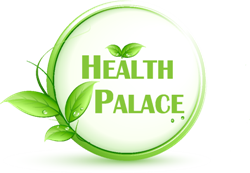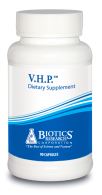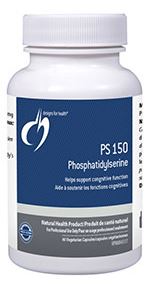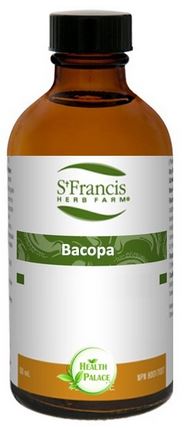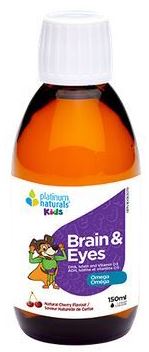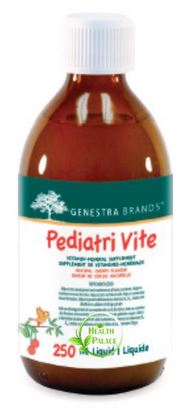Natural Supplements and Remedies for ADHD | How to Treat Attention Deficit Disorder Naturally?
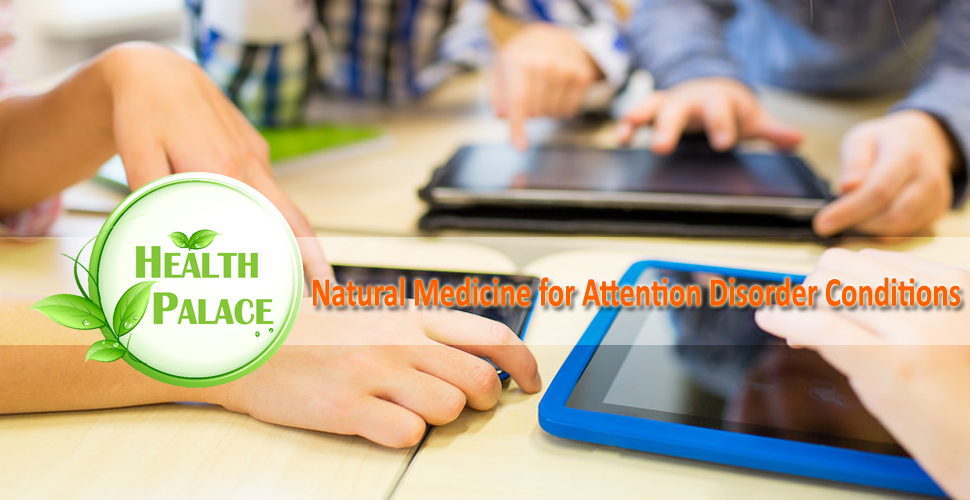
How to improve symptoms of attention disorder with natural medicine?
In recent years, attention issues in children and young adults have become more concerning for parents and teachers. It just seems children are less paying attention because they are distracted or have lots of energy. They may pay more attention in some settings, while they are paying less attention in other setting such as in school and class room. There is a tiny percentage of children who constantly having problem focusing and their behaviors cause problem at the school, with neighbors or friends, and at home. Up to 60% of school-age children with attention disorders may continue to experience symptoms into adulthood. Fortunately, evidence based natural and integrative medicine has been shown to offer considerable benefit to improve and maintain focus and attention for all types of attention problems.
 What are the attention problems?
What are the attention problems?
Attention problems in general can be categorized to three types; and in each type issues can be ranged from mild to pervasive.
In the first group; problems are caused by factors in the environment such as in hostile and/or deficient settings. According to the American Academy of Pediatrics commonly occurring stressful events in young hood can lead to common behavioural responses such as change in eating, shyness, passivity, lack of skills, bullying, aggression, anxiousness, sadness, fearfulness, Impulsive/hyperactive or Inattentive behaviors, and more. Stressful events could be financial issues, death or illness of loved ones, domestic violence, divorce, and etc.
In the second type; problems are caused both by the environment and the person which is usually observed when there is a miss match between individual differences and the environment. It is important to note that these issues however, are not due to a disease in an individual.
While; In the third type, problems are caused due to a disease or pathology in the person. This suggests that the behavioural, emotional, or learning problems are caused by an internal pathology, such as structural or genetic issues which has led to developmental syndromes, learning disabilities, anxiety disorder, depression, autism, ADD, ADHD, and so on.
Which integrative natural solutions can improve symptoms of attention disorders?
Based on research, increased omega 3 fatty acid concentration in the diet alters the structure of the neurons membrane in the nervous system, enhancing serotonin and dopamine neurotransmission especially in the frontal cortex. Also Omega 3 fatty acids reduce oxidative damage to the nerve cells.
Studies have found the severity of the attention disorders is linked to low blood levels of Omega fatty Acid.Since Hyperactivity and inattention in general are also related to omega-3 deficiency, making it a risk factor for ADHD. In fact low omega-3 fatty acid is very common and associated with ADHD-related symptoms including oppositional behavior and emotional instability.
Comprehensive research showed that 6 months of supplementing with omega 3 fatty acids improves attention and focus of participants; also, helped to reduce symptoms of ADHD, and other attention disorders.
Phosphatidylserine which is known as PS is one of the most important building blocks of the cell membrane and one of the most significant brain nutrients. PS is not only plays a role in brain cell structures but also influences the neurotransmitter systems of the brain such as, acetylcholine, dopamine, serotonin. Several clinical studies have evaluated the role of the PS in overall brain health and improving variety of attention problems including ADHD.
For example, In a randomized study, children with diagnosed ADHD condition were put on 200 mg of PS oral supplementation for two months and their symptoms of inattention, impulsivity, and short-term memory were significantly improved without reporting any side effect.
Other controlled trial used combination of 300 mg PS with EPA and DHA Fatty acids , for duration of 15 weeks. The treatment resulted in significant improvement in symptoms suggesting that as an effective treatment in children with more pronounced hyperactive and impulsive behavior.
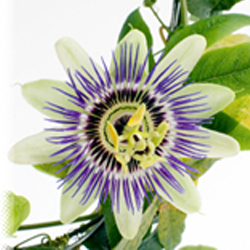
Passiflora incarnata L and is a known remedy for anxiety and hyperactivity. In a study the effectiveness of the passion flower extract was compared with a commonly used medication for ADHD. After 60 days both groups demonstrated great respond during the treatments, suggesting that passiflora may be used as a therapeutic protocol for the treatment of ADHD, with the advantage of well tolerance.
Bacopa is an Ayurvedic medicine which has been used to modulate memory, concentration, and learning. Studies suggest it can improve memory and learning in cases with attention disorders, and hyperactivity. Supplementing 225 mg daily for 6 months resulted in significant reduction in symptoms associated with ADHD including restlessness, attention-deficit symptoms, learning problems, impulsivity, and psychiatric problems.
The efficacy of Bacopa has been attributed to its neuroprotective and antioxidant effects, as well as regulation of dopamine, and inhibition of cholinesterase . Bacopa is generally well tolerated, however in some cases it may cause minor digestive side effects.
Melatonin is a hormone naturally secreted mainly by the pineal gland in response to variations in the circadian cycle and has been used for the last two decades for the treatment of sleep disorders in adults and children. Melatonin in contrast to majority of sleep medications has a benign side effect profile with little dependence potential and produce no hangover effect.
Randomized placebo controlled trails suggests it is beneficial in decreasing sleep latency, increasing total sleep time and improving sleep quality in both children and adults with primary sleep disorders.
Sleep problems are very common among those with attention disorders. Several trials examined the efficacy of melatonin in reducing sleep problems in cases with hyperactivity and chronic sleep onset insomnia. Results demonstrated a significant benefit of melatonin on primary sleep measures including decreased time to sleep onset and increased total sleep time.
Some amino acids have been shown to produce direct or indirect effects on the levels of specific neurotransmitters. therefore they are conceded as potential treatment for psychological and mood related issues as well as attention disorders. Amino acids such as glycine, L-theanine, L-tyrosine, taurine, acetyl-L-carnitine (ALC), GABA, 5- hydroxytryptophan (5-HTP), and s-adenosyl-L-methionine (SAMe), are all studied for their beneficial effects on hyper activity and attention disorders.
Acetyl-L-Carnitine is a natural form of amino acid L-Carnitine, which plays a role in metabolizing fatty acids and cell energy production. Both animal and human trail with Acetyl-L-Carnitine showed its long term use is effective in reducing the symptoms of impulsivity and hyperactivity, as well as improving social behavior. The animal study suggests that Acetyl-L-Carnitine works by balancing the altered levels of certain neurotransmitter metabolites in the brain.
L- Theanine is an amino acid derived from in both green and black teas. Because of its ability to cross the blood-brain barrier, L theanine provides a greater spectrum of therapeutic benefits in most pertinent. The therapeutic benefits of L theanine have been attributed to regulation of dopamine and serotonin and an increased production of inhibitory neurotransmitters like GABA.
It has been reported that L theanine also creates improvement in selective attention during performing mental tasks by modulating alpha brain wave. Aside from its application for attention disorders, L theanine has also been suggested to be beneficial for bipolar disorder, panic disorder, and obsessive compulsive disorder.
Pyridoxine or Vitamin B6, is one of the necessary components in production of serotonin. Supplementation with vitamin B6 improves serotonin levels which in turn improves many neurological symptoms.
Nutritional surveys have found those with attention disorders are significantly lower in vitamin B6. Pyridoxal 5-phosphate is the biologically active form of vitamin B6 that is utilized and absorbed by the body much better than conventional B6. Inadequate levels of plasma Pyridoxal 5-phosphate can lead to depression, insomnia, irritability, muscle twitching, convulsions, hypertension, water retention, and other health conditions.
Minerals such as Zinc and iron are both involved in dopamine production, so deficiencies in these minerals could have effects on dopamine neurotransmission. For example, in children with hyperactivity, when their treatment included 55 mg of zinc daily, resulted in a much better response in comparison with those who did not take zinc. Zinc is crucial for the activity of those cell membrane stabilizing enzymes, and in the metabolism of neurotransmitters, melatonin and prostaglandins. Zinc has indirect role in dopamine metabolism and provides antioxidant functions.
Also, it is found that children with attention disorders are often iron deficient , and the severity of the iron deficiency is related to the severity of their symptoms. Iron is a cofactor of an enzyme called tyrosine hydroxylase which is necessary in synthesis of dopamine and norepinephrine.
Magnesium has demonstrated positive influence in the prevention and treatment of hyperactivity in children and adults. When magnesium level was assessed, 95% of the cases with attention disorders showed magnesium deficiency. The analysis indicated the correlation between levels of magnesium and the degree of distractibility.
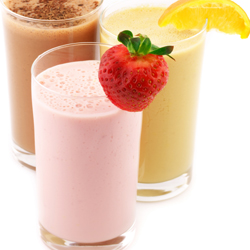
Dietary and lifestyle considerations
A growing body of research indicates dietary changes can substantially improve attention disorder symptoms. Diet is not a direct cause of attention disorders, but food can and does affect the mental state, and eventually is reflected by behavior. Monitoring and modifying what , when, and how much to eat can help decrease the symptoms of attention disorders ADD/ ADHD.
Eating fresh foods, regular meal times, and avoiding junk and processed food is important to prevent missing meals and developing eating disorders especially for those with impulsive behaviours and attention disorders.
Statistical studies have found higher rate of attention disorders in those who were on western diets (high in fat, sugar, processed foods), while this pattern was not found on those with healthy diets.
Artificial additives and food color exclusion, and elimination diet produce great favorable results specially in individuals with food sensitivities.
Reviews of 23 controlled studies on the effect of food dyes and other dietary constituents on the behavior of children with Attention-Deficit/Hyperactivity Disorder (ADHD) or other behavioral problems, found that in 17 of the 23 studies some children's behavior significantly worsens after they consume artificial colors or certain foods such as milk or wheat. Limited research with utilizing electroencephalography indicates that certain foods trigger physiological changes in sensitive individuals.
Health palace provides an extensive food sensitivity tests, to get your test kit please contact us.
Related articles:
Nutrients And Their Life Changing Effects On Brain Health
Key Steps to De-stress and Improve Your Energy and Focus
Key Nutrients to Remove Toxic Heavy Metals from the Body
How to Boost Memory and Brain Health?
Articles and products featured by Health Palace are collected from a variety of sources and are provided as a service by Health Palace. These newsletters, while of potential interest to readers, do not necessarily represent the opinions nor constitute the advice of Health Palace. Presented materials are only for information purposes and do not intent to treat, cure, or prevent any disease.
Select references:
1.Arnold LE, DiSilvestro RA. Zinc in attention-deficit/hyperactivity disorder. Journal of child and adolescent psychopharmacology. 2005 Aug;15(4):619–627.
2.Bliwise DL, Ansari FP. Insomnia associated with valerian and melatonin usage in the 2002 National Health Interview Survey. Sleep. 2007 Jul;30(7):881–884.
3.Ferracioli-Oda E, Qawasmi A, Bloch MH. Meta-analysis: melatonin for the treatment of primary sleep disorders. PloS one. 2013;8(5):e63773.
4.Weiss MD, Wasdell MB, Bomben MM, Rea KJ, Freeman RD. Sleep hygiene and melatonin treatment for children and adolescents with ADHD and initial insomnia. Journal of the American Academy of Child and Adolescent Psychiatry. 2006 May;45(5):512–519.
5.Van der Heijden KB, Smits MG, Van Someren EJ, Ridderinkhof KR, Gunning WB. Effect of melatonin on sleep, behavior, and cognition in ADHD and chronic sleep-onset insomnia. Journal of the American Academy of Child and Adolescent Psychiatry. 2007 Feb;46(2):233–241.
6.Van Oudheusden LJ, Scholte HR. Efficacy of carnitine in the treatment of children with attention-deficit hyperactivity disorder. Prostaglandins, leukotrienes, and essential fatty acids. 2002 Jul;67(1):33–38.
7.Abbasi SH, Heidari S, Mohammadi MR, Tabrizi M, Ghaleiha A, Akhondzadeh S. Acetyl-L-carnitine as an adjunctive therapy in the treatment of attention-deficit/hyperactivity disorder in children and adolescents: a placebo-controlled trial. Child psychiatry and human development. 2011 Jun;42(3):367–375.
8.Arnold LE, Amato A, Bozzolo H, et al. Acetyl-L-carnitine (ALC) in attentiondeficit/hyperactivity disorder: a multi-site, placebo-controlled pilot trial. Journal of child and adolescent psychopharmacology. 2007 Dec;17(6):791–802.
9.Akhondzadeh S, Mohammadi MR, Khademi M. Zinc sulfate as an adjunct to methylphenidate for the treatment of ADHD in children: a double blind and randomized trial [ISRCTN64132371]. BMC Psychiatry. 2004 Apr 08;4(1):9.
10.Arnold LE, Amato A, Bozzolo H, Hollway J, Cook A, Ramadan Y, Crowl L, Zhang D, Thompson S, Testa G, Kliewer V, Wigal T, McBurnett K, Manos M. Acetyl-L-carnitine (ALC) in attention-deficit/hyperactivity disorder: a multi-site, placebo-controlled pilot trial. J Child Adolesc Psychopharmacol. 2007 Dec;17(6):791-802.
11.Arnold LE, Hurt E, Lofthouse N. Attention-Deficit/Hyperactivity Disorder: Dietary and Nutritional Treatments. Child Adolesc Psychiatric N Am. 2013;22(3):381-402.
12.Berridge CW, Devilbiss DM. Psychostimulants as cognitive enhancers: the prefrontal cortex, catecholamines, and attention-deficit/hyperactivity disorder. Biol Psychiatry. 2011 Jun 15;69(12):e101-11.
13.Bloch MH, Qawasmi A. Omega-3 fatty acid supplementation for the treatment of children with attention-deficit/hyperactivity disorder symptomatology: systematic review and meta-analysis. Journal of the American Academy of Child and Adolescent Psychiatry. Oct 2011;50(10):991-1000.
14.Christman AK, Fermo JD, Markowitz JS. Atomoxetine, a novel treatment for attention-deficit-hyperactivity disorder. Pharmacotherapy. 2004 Aug;24(8):1020-36.
15.Colter AL, Cutler C, Meckling KA. Fatty acid status and behavioral symptoms of attention deficit hyperactivity disorder in adolescents: a case-control study. Nutr J. 2008;7:8.
16.Manor I, Magen A, Keidar D, Rosen S, Tasker H, Cohen T, . . . Weizman A. The effect of phosphatidylserine containing Omega3 fatty-acids on attention-deficit hyperactivity disorder symptoms in children: a double-blind placebo-controlled trial, followed by an open-label extension. European psychiatry : the journal of the Association of European Psychiatrists. Jul 2012;27(5):335-342.
17.Cortese S, Angriman M, Lecendreux M, Konofal E. Iron and attention deficit/hyperactivity disorder: What is the empirical evidence so far? A systematic review of the literature. Expert review of neurotherapeutics. Oct 2012;12(10):1227-1240.
18.Hirayama S, Terasawa K, Rabeler R, Hirayama T, Inoue T, Tatsumi Y, . . . Jager R. The effect of phosphatidylserine administration on memory and symptoms of attention-deficit hyperactivity disorder: a randomised, double-blind, placebo-controlled clinical trial. Journal of human nutrition and dietetics : the official journal of the British Dietetic Association. Mar 17 2013.
19.Johnson M, Mansson JE, Ostlund S, Fransson G, Areskoug B, Hjalmarsson K, . . . Gillberg C. Fatty acids in ADHD: plasma profiles in a placebo-controlled study of Omega 3/6 fatty acids in children and adolescents. Attention deficit and hyperactivity disorders. Dec 2012;4(4):199-204.
20.Kasparek T, Theiner P, Filova A. Neurobiology of ADHD From Childhood to Adulthood: Findings of Imaging Methods. Journal of attention disorders. Oct 4 2013.
21.Konofal E, Lecendreux M, Arnulf I, Mouren MC. Iron deficiency in children with attention-deficit/hyperactivity disorder. Arch Pediatr Adolesc Med. 2004 Dec;158(12):1113-5.
22.Konofal E, Lecendreux M, Deron J, Marchand M, Cortese S, Zaim M, . . . Arnulf I. Effects of iron supplementation on attention deficit hyperactivity disorder in children. Pediatric neurology. Jan 2008;38(1):20-26.
23.Kozielec T, Starobrat-Hermelin B. Assessment of magnesium levels in children with attention deficit hyperactivity disorder (ADHD). Magnesium research : official organ of the International Society for the Development of Research on Magnesium. Jun 1997;10(2):143-148.
24.Philipsen A, Hornyak M, Riemann D. Sleep and sleep disorders in adults with attention deficit/hyperactivity disorder. Sleep medicine reviews. Dec 2006;10(6):399-405.
25.Pontifex MB, Saliba BJ, Raine LB, Picchietti DL, Hillman CH. Exercise improves behavioral, neurocognitive, and scholastic performance in children with attention-deficit/hyperactivity disorder. The Journal of pediatrics. Mar 2013;162(3):543-551.
26.https://www.ncbi.nlm.nih.gov/pubmed/9368235?dopt=Abstract
27.10.2217/14750708.2.4.609 © 2005 Future Medicine Ltd ISSN 1475-0708-Therapy (2005) 2 (4), 609–614
28.http://ajp.psychiatryonline.org/doi/abs/10.1176/appi.ajp.2012.12070991
29.http://journals.sagepub.com/doi/abs/10.1177/1087054710365990
30.Center for Science in the Public Interest, 1875 Connecticut Ave., NW #300, Washington, DC 20009. Tel: 202-332-9110; Fax: 202-265-4954;
31.J. Pellow, E.M. Solomon, and C. N. Barnard, “Complementary and alternative medical therapies for children with attentiondeficit/ hyperactivity disorder (ADHD),” Alternative Medicine Review, vol. 16, no. 4, pp. 323–337, 2011.
32.A.Bader and A. Adesman, “Complementary and alternative therapies for children and adolescents with ADHD,” Current Opinion in Pediatrics, vol. 24, no. 6, pp. 760–769, 2012.
33.A.L. Lardner, “Neurobiological effects of the green tea con- stituent theanine and itspotential role inthe treatment of psychiatric and neurodegenerative disorders,” Nutritional Neu- roscience, vol. 17, no. 4, pp. 145–155, 2014.
34.U. P. Dave, S. R. Dingankar, V. S. Saxena et al., “An open-label study to elucidate the effects of standardized Bacopa monnieri extract in the management of symptoms of attention-deficit hyperactivity disorder in children,” Advances in Mind-Body Medicine, vol. 28, no. 2, pp. 10–15, 2014.
35.S. Akhondzadeh, M. R. Mohammadi, and F. Momeni, “Passiflora incarnata in the treatment of attention-deficit hyperactivity disorder in children and adolescents,” Therapy, vol. 2, no. 4, pp. 609–614, 2005.
| Bioclinic Naturals CortAlign 90 Tablets |
Biotics Research VHP 90 Capsules |
Designs for Health PS 150 Phosphatidylserine 60 Veg Capsules. |
|||||||
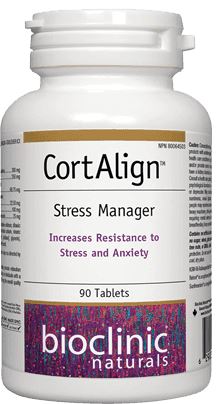
...Read more |
Healthy sleep Indications: Herbal formula for nervousness, hyperactivity, insomnia, hyperirritability. Ingredients:
...Read more |
Helps support cognitive function Additional Information/Highlights: Phosphatidylserine (PS) is an essential component of all neuronal membranes. Human research suggests PS may help support overall brain wellness. .... |
|||||||
|
|
|
|
|
|
|||||
|
|
|
|
|||||||
St Francis Bacopa 250 Ml |
Platinum Naturals Kids Brain & Eyes 150 Ml |
Genestra Pediatri Vite 250 Ml |
|
||||||
|
Used in traditional Ayurvedic medicine as a medhya rasayana to support and nourish the memory and intellect. |
Platinum Naturals Kids Brain & Eyes contains a concentrated level of DHA and lutein to help support brain and eye development, eyesight and memory... Read more |
Multi-vitamin/mineral supplement to help support bone health,Immune function, and normal growth and development. A factor in the maintenance of good health and an antioxidant for the maintenance of good health... |
|||||||
|
|
|
Recent Posts
-
Maintain A Healthy Heart Rhythm With Integrative Medicine
Maintain A Healthy Heart Rhythm With Integrative Medicine;Usually, abnormal heart rate or arrhythmi …4th Feb 2021 -
How To Protect Against COVID-19
Coronaviruses are a large group of viruses that cause many common human and animal infections. In hu …30th Jun 2020 -
How to Prevent Gallstones from Forming? | Natural Supplements for Gallstones
How To Prevent Gallstone Formation?Gallstones are hard deposits made of cholesterol or bilirubin f …4th Mar 2020
